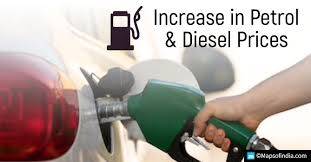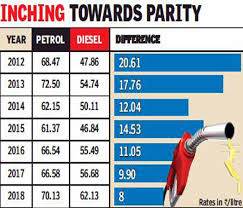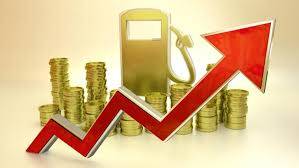
With the price of petrol and diesel scaling new heights, there is concern about what would be the steps taken by the government to control the same. In the report, CARE Ratings says, "...there is little that can be done in terms of influencing the global price, which will be driven by external factors. The currency too is beyond the purview of the government and will be driven by both fundamentals and extraneous forces. The choices are, reduction of excise duty or VAT by the central and state governments or provide a subsidy on these products to buffer price increase."
Also read:- Is the fashion industry really that competitive?
 Which Is the Relevant Price for India?
Which Is the Relevant Price for India?
The Indian crude basket is a combination of Oman, Dubai and Brent varieties and the average price in July 2018 was around $73.5/barrel. To this should be multiplied the exchange rate which has been depreciating of late to over Rs71 per US dollar.
Factors which lead to the contribution of hike in petrol and diesel price rise -
1. Government taxes at both the central and state levels are then added besides commission to the dealers for arriving at the final price.
2. The surge in fuel prices is largely attributed to the rise in crude oil prices and high rate of excise duty in the country. Brent crude oil is currently priced over $78/barrel.
3. The recent slump in rupee also has lifted the import cost of crude oil, subsequently raising fuel prices.
4. The central government excise rate is fixed and is around Rs20 per litre on petrol and Rs15.25 on diesel. The VAT or sales tax rates vary from 16% in Goa to 38.5% to 39.5% in Maharashtra for petrol. In case of diesel, it varies from 22% to 25% in Maharashtra to 11.5% in Chandigarh. As petrol and diesel are out of the GST framework, there is no compulsion to lower these rates.
5. "With inflation already rising, especially on the non-food part for both the CPI and WPI, higher fuel prices will mean that the Reserve Bank of India (RBI) would have to take action on interest rates and there would definitely be another rate hike of at least 25 basis points (bps).
In regard of the above issues the government is planning to take the following steps:-

# Just as the central government has taken responsibility, states should also take responsibility to reduce VAT, which directly goes into their account. The VAT on fuel goes up to 40%. States are the biggest beneficiaries of all collections. Even if they reduce VAT by 5%, consumers will benefit,” he added.
# The government is mulling over a plan in the backdrop of petrol price touching a record high of Rs 76.24 per litre, rising 33 paise in Delhi. It is the steepest increase since the retailers adopted the system of daily price revision in June, 2017. The price of Diesel rose by 26 paise to Rs 67.57 a litre, which is an all-time high.